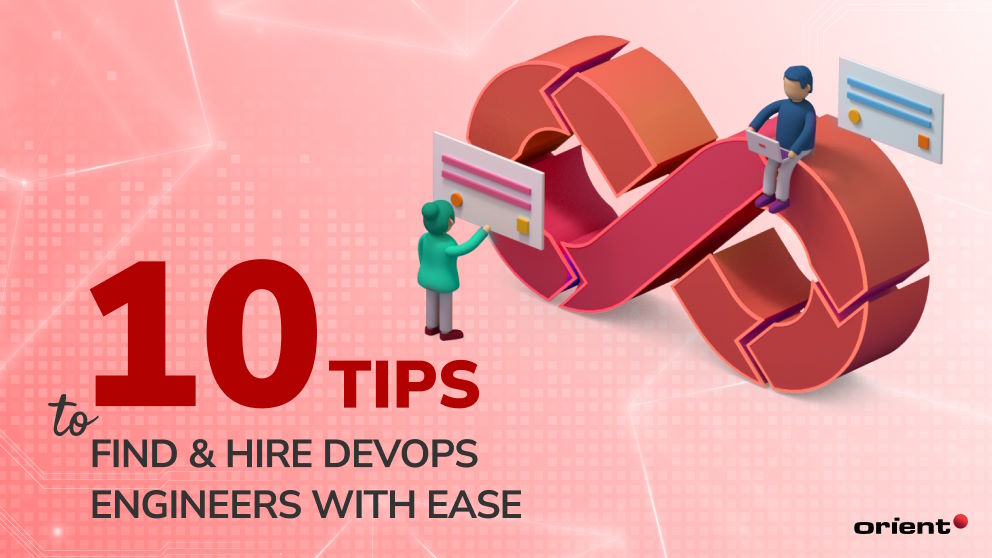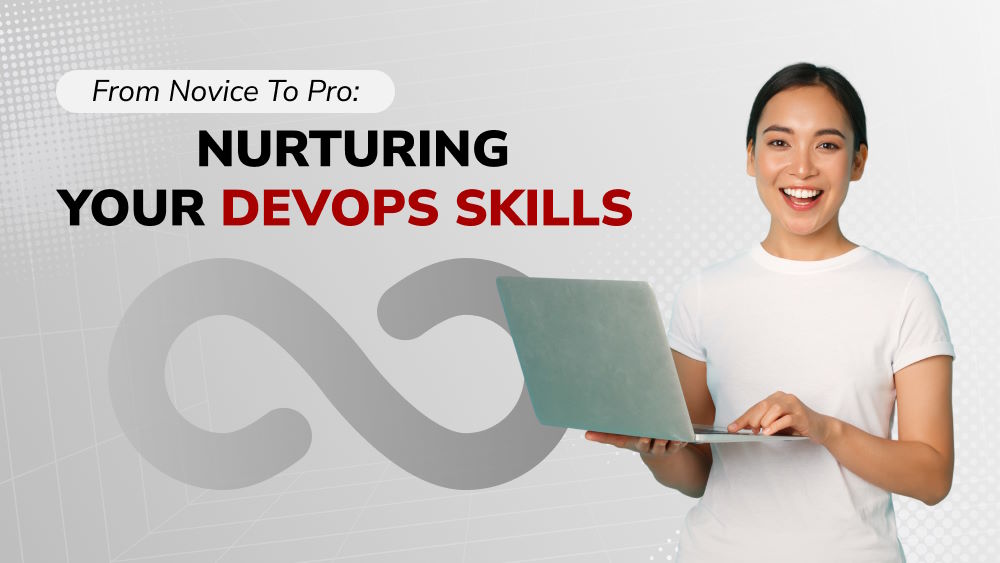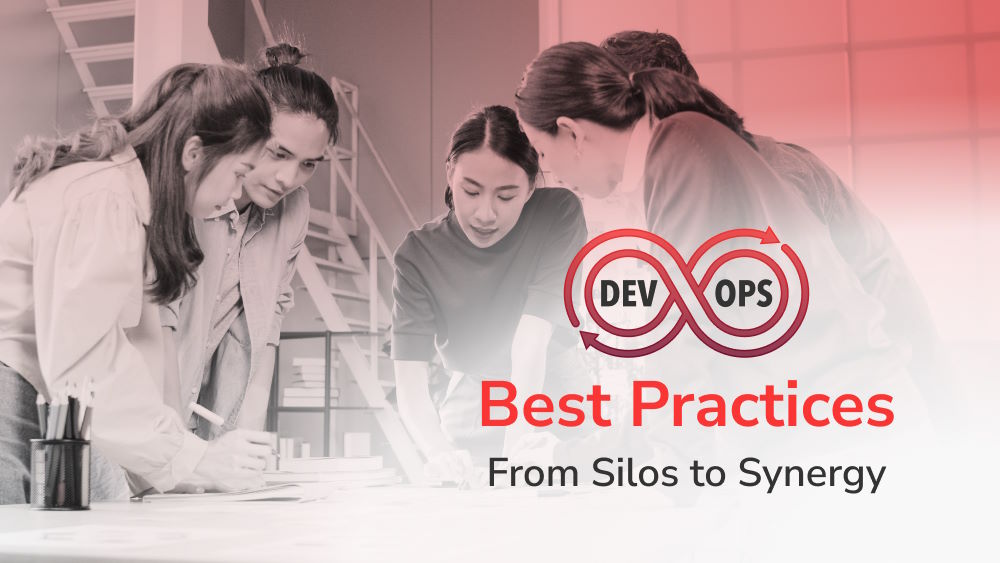Top 10 Useful Recruiting Tips to Find & Hire DevOps Engineers with Ease

Content Map
More chaptersDevOps is a cultural and professional movement focusing on how we deliver our software. It puts an emphasis on collaboration between all the people involved in the delivery process - developers, operations teams, and QA engineers working together to share the responsibility of what happens with code once it’s pushed into production. It also increases communication and collaboration between teams, resulting in higher quality software being delivered faster. Many companies have been using it to shorten the feedback loop and improve their development process. However, hiring DevOps engineers can be a daunting task. Therefore, we are going to investigate how to recruit them quickly and successfully.
Some Key Benefits of Hiring DevOps Engineers
There are many critical benefits associated with hiring a DevOps team in software development. Some of them include:
Standardizing IT Processes
Implementing a DevOps team will help standardize and modernize your company’s IT processes. This, in turn, will help improve efficiency, output, scalability, and reliability. It will also reduce the amount of time required to push updates to the market when compared with non-DevOps processes.
Reducing the Cost of Running Your Business
You will benefit from reduced IT costs when you hire a DevOps team, as this approach allows companies to outsource most or all of their IT operations to experts in this field. Outsourcing your complete IT operations doesn’t only reduce the amount of capital required to run your business, but it also reduces your business’s reliance on in-house IT personnel. As a result, you’ll be able to run your entire company with fewer employees.
Increasing Your Customer Base
Hiring a DevOps team can help you grow your customer base by more effectively dealing with scaling issues when they arise (e.g., launching new products in a foreign market or incorporating software updates after launch). In addition, DevOps teams can enable you to deliver the latest updates to your customers in a more timely fashion.
What Qualities Should Hiring Managers Consider in a DevOps Engineer?
To find and hire DevOps engineers with ease, you should understand what to look for in a DevOps engineer. Top DevOps engineers should have expertise in one or more of the following skillsets:
Infrastructure Planning & Administration
DevOps engineers should have extensive knowledge of the latest tools and techniques used in deploying applications. They should also know how to manipulate cloud platforms like AWS, Azure, and Google Compute Engine (GCE).
Configuration & Release Management
A top-notch DevOps engineer will know how to manage servers on different platforms using scripts. They should also be able to automate the release management process by coordinating software releases.
Cloud Technologies
DevOps engineers who specialize in cloud technologies will have expertise in AWS, Azure, Google Compute Engine (GCE), or other cloud platforms. They should know how to use the different services available on these platforms, as well as how to integrate them with one another.
Agile Development
As one of the core components of DevOps, agile development is a part of Agile software methodology. It enables DevOps engineering teams to identify and deliver new features within shorter timeframes without sacrificing quality or end-user experience. Being able to work with an organization’s software development team will ensure that you’re able to implement this useful process efficiently. Software companies should hire DevOps engineers to help them transition agile methodologies into company-wide best practices for developing new products and updating existing ones.
Automation Skills
Familiarity with popular software automation tools, such as Chef and Puppet, will enable you to implement Agile processes efficiently. More importantly, this familiarity will allow you to collaborate well with your company’s system administration team by maintaining an up-to-date automated infrastructure.
System Administration
It’s becoming increasingly important for DevOps engineers to have a strong command of open-source tools, such as Chef and Puppet. In addition to being able to effectively implement Agile software development processes, your team should also be familiar with network systems administration. Having knowledge of this skill will enable you to collaborate more efficiently with your company’s system administrators.
Server Virtualization
Server virtualization is an important skill that will enable you to seamlessly perform parallel testing. Even if your company doesn’t use server virtualization, it’s still necessary for DevOps engineers to be familiar with the basics of this technology. Not only will this knowledge help you collaborate more efficiently with system administrators, but it will also allow you to deliver updates quickly, efficiently, and without the risk of downtime.
Continuous Delivery
Being familiar with continuous delivery will help you work more efficiently as part of a team comprised of developers, system administrators, and network engineers. This expertise will also enable you to collaborate with your company’s infrastructure and software development teams better. Furthermore, having knowledge of this skill set will allow you to reduce the number of bugs that make it into production, thereby reducing the time it takes for updates to be released.
Continuous Integration
All of the above qualities are useful, but continuous integration is especially vital to the success of your DevOps teams. Being able to automate build processes and release software updates at a rapid rate will ensure that you’re able to deliver products within shorter timeframes without sacrificing quality or end-user experience.
Soft Skills
In addition to possessing one or more hard skills, successful DevOps engineer candidates also generally demonstrate the following soft skills:
- Team player: We all know that engineers love to code, but they also need to work well with other team members. A good team player knows how to share their expertise and knowledge with other engineers on the team.
- Strong written and verbal communication skills: An essential characteristic of any DevOps engineer is the ability to convey information clearly (e.g., through documentation or by speaking with clients).
- Ability to work independently: A DevOps engineer needs to effectively test software updates before implementing them, which requires minimal supervision.
- Ability to think strategically: This skill is particularly important when it comes to planning out infrastructure upgrades, for example, if your company needs additional computer resources (e.g., cloud servers).
How to Hire DevOps Engineers Successfully
Hiring DevOps engineers can be a daunting task. There are so many options to choose from, and not all candidates have the same skillset. In order to find the best candidate for your organization, you need to use some specific recruiting tips. By following these crucial tips, you will be able to find the perfect DevOps engineers for your team.
Involve the Existing Teams in the Recruiting Process
Involve the teams that are going to work with DevOps engineers in the recruiting process, including resume screening and conducting interviews. This way, you’ll be able to find out what kind of skills they need, and it will also help them understand why certain skills are needed. Without this, they might not be able to judge the candidates correctly, and you might end up hiring someone that doesn’t meet their expectations.
Define Unique Requirements for Each Position
A lot of organizations often assume all DevOps engineers are the same, and they don’t even try to define unique requirements for each position. They end up with a generic list of skills and abilities, which turns out to be useless because it doesn’t provide any additional information or help them find better candidates.
Instead, you should define custom skills and abilities for every job opening and develop a clear but concise job description. This way, you’ll be able to hire DevOps engineers with ease for your development team.
Consider Different Experience Levels
People that are working with DevOps teams these days have different experience levels. It’s essential for you to understand the difference between a junior, mid-level, and senior DevOps engineer so you can choose the ones who will fit your team best.
Instead of hiring someone just because they have all the skills you need, think about whether they have the experience to achieve their goal. If you don’t, you might end up wasting valuable time on training them instead of focusing on your business goals.
Think About DevOps Staffing Options for Niche Roles
While most DevOps engineers are highly skilled and have a wide range of abilities, there are some niche roles that will be hard for you to find candidates for. For those positions, your best option is to consider DevOps staffing options from a recruitment firm or freelancer who can provide qualified experts for those roles.
Focus on More Than Just Technical Skills
Most of the time, people think that they need to hire DevOps engineers with the best technical skills out there if they want to build a strong software development team. However, this is not true at all. Technical skills are only one of the requirements for DevOps positions, and you should consider other factors as well. Therefore, you should also assess whether a candidate has the necessary soft skills to collaborate with your existing team and handle the job requirements.
Develop a Competitive DevOps Compensation Plan
One common mistake most organizations often make is that they think they can attract good DevOps engineers by offering them a high salary even if it doesn’t match their skills and abilities. This might work sometimes, but it’s not guaranteed at all. Instead, you should focus on developing fair compensation plans for your DevOps positions to ensure that you can attract the best candidates.
Outsource When Necessary
Outsourcing some parts of your DevOps teams might be a good idea if you don’t want to hire experienced experts and you just need someone to handle routine tasks or support. Keep in mind that outsourcing can lead to security issues, and it’s better not to outsource mission-critical jobs but to find other solutions for those tasks. For example, you can outsource tasks like loading testing if your main goal is to speed up the software development process. Another advice is that you should
Keep an Eye on Social Media Platforms
Social media platforms are potential for you to connect with DevOps professionals. They’re also a good source of information because most experts write blogs about their experience in the field. Keep an eye on these sources and find your next DevOps engineer via social media. You should keep an eye on some popular platforms, such as Facebook, Twitter, and LinkedIn. At the same time, social media platforms can be risky if you’re not careful. There are many fake experts that will try to sell you their services, so make sure to check them out before hiring them.
Look for International DevOps Talent
If the local talent pool cannot provide you with enough DevOps engineers, then consider looking overseas. There are many talented DevOps experts across the globe, so don’t forget to think about these options. Most of them are even willing to relocate for the right job or work remotely, so you can find someone with the skills and experience your team requires without leaving your country. This can be a good way to solve the current shortage of software developers in the tech industry.
Attend Conferences and Networking Events
Networking events and conferences are another great way to find your next DevOps employees. Most of the time, these events bring together experts from all fields. This is such a good opportunity for you to get to know and keep in touch with potential DevOps professionals for later collaboration. You should think about asking them if they know someone who can fit your position before attending these networking events, but keep an eye out on talks and presentations as well. It just might be the perfect opportunity to meet your future DevOps team members.
Conclusion

Recruiting DevOps engineers will open the horizon to better performance for your business, but it is not easy. With these essential tips, you can quickly find and hire top-notch DevOps engineer candidates to boost your development team and take your business to the next level. Just remember to be creative and flexible during your hiring process, and you will find the best DevOps team member that can help you grow your business.







